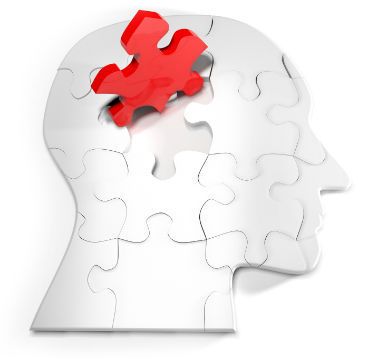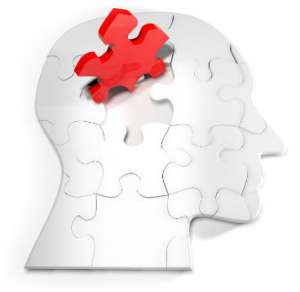
Everyone gets a little forgetful from time to time. Particularly when you are under a lot of stress, and once you enter middle age, forgetfulness tends to rear its inconvenient head from time to time.
But what if it was more than simply forgetting? How would you know when it might be something more?
Alzheimer’s is a serious degenerative brain disease that usually has a slow onset, but worsens greatly over time. While there is no single test available to diagnose Alzheimer’s, there are a number of symptoms that could indicate you should consult a specialist for an evaluation.
Keep in mind that anyone can experience a couple of these to various degrees, but there is no harm in discussing them with a doctor if you experience them, as early diagnosis is very important.
1. Loss of memory in everyday life
A very common early sign of Alzheimer’s is memory loss, particularly about newly learned information. When your memory loss begins to affect your daily life, this could be a serious red flag. If you are forgetting important information that you have known all your life, and find yourself asking the same question over and over, then it is not typical age-related forgetfulness.
Another flag with this is needing help from others for daily living tasks that you used to be able to do alone.
2. Difficulty problem solving
Losing the ability to put together a plan of action and follow it out could be a sign of something troubling. Also finding yourself unable to manage numbers, such as balancing a checkbook or paying monthly bills, are red flags. If you find yourself unable to concentrate on complex situations for lengthy periods of time, you may be suffering more than a temporary setback.
This should not be confused with making occasional small errors with your checkbook, which is a normal age-related occurrence.
3. Forgetting where you are or how you got there
Alzheimer’s can cause people to forget months of the year, how much time has passed by, and important dates. It can cause confusion as to how things lead from one stage to another if it is not occurring at that moment. People with Alzheimer’s sometimes forget where they are or how they came to be there.
4. Difficulty reading or confusion with visual images
This should not be confused with the development of cataracts, which is considered normal in older age individuals. With Alzheimer’s, people can find themselves confused and not understanding the visual images in front of them.
They can have difficulty reading and following the flow of the information being presented to them. They may find they have difficulty in accurately judging distance or other spatial relationships.
5. Problems with words or conversations
Alzheimer’s makes it difficult for people to follow topics of conversation. They may repeat things they have already said, or be suddenly unable to finish their complete thought. Vocabulary becomes difficult, words are forgotten, or things may be referred to incorrectly.
6. Misplacing items
 Keep in mind that everyone misplaces things from time to time, but retracing your steps usually leads you to the object. However, Alzheimer’s causes people to put items in strange or unusual places. Later, they won’t remember where or why it was put there. Often, individuals affected with this condition begin to accuse others of stealing.
Keep in mind that everyone misplaces things from time to time, but retracing your steps usually leads you to the object. However, Alzheimer’s causes people to put items in strange or unusual places. Later, they won’t remember where or why it was put there. Often, individuals affected with this condition begin to accuse others of stealing.
7. Withdrawal from others
When someone has Alzheimer’s, they may withdraw from the things they used to do, particularly social activities. They may stop participating in work projects, hobbies, and sports. They may have trouble keeping up with things that they used to, or they may avoid social interaction because of changes they have noticed.
8. Personality changes
Alzheimer’s can cause people to become suspicious, confused, angry, fearful, and depressed. They may find themselves easily upset by others and changes in their routine. They may lash out with little provocation, and at other times, they may be almost lost, confused, and mild mannered.
If you find you are experiencing any of the above symptoms, don’t panic. However, do schedule a visit with your doctor, just to make sure everything is alright, and to catch any issues early if they exist.
-The Alternative Daily
Sources:
http://www.alz.org/alzheimers_disease_10_signs_of_alzheimers.asp
http://www.webmd.com/alzheimers/early-warning-signs-when-to-call-the-doctor-about-alzheimers
http://www.mayoclinic.org/diseases-conditions/alzheimers-disease/expert-blog/warning-signs-of-alzheimers/bgp-20055898

